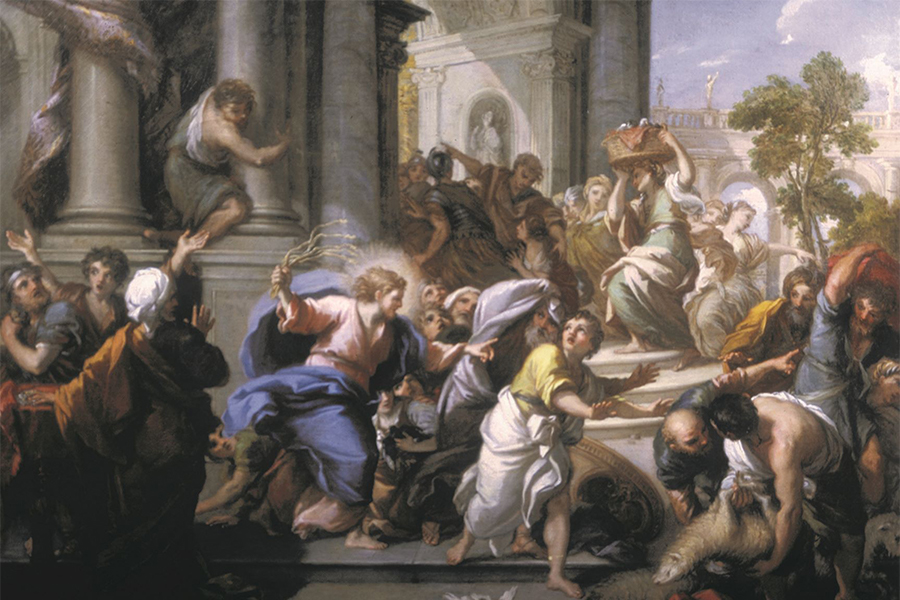
Zeal For Your House Will Consume Me
03-03-2024Weekly ReflectionFr. Manasseh Iorchir, VCIn every relationship that involves two or more persons, there are usually rules that define the basis of such a relationship, guide its progress and sometimes state what is prohibited for the continuous existence of such a relationship. The rules could be written, oral or simply left to the understanding of the parties involved. From the call of Abraham, God indicated that He intended to have a relationship with his descendants. When they crossed the Red Sea, Israel crossed not only from slavery to freedom, but also from a loose collection of tribes to a developing nation.
Thus, it became necessary for the ground rules for their relationship with God to be codified into a brief, but effective, body of laws that would guide their covenant relationship with God and with each other. Although the decalogue did not cover every imaginable facet of life in the relationship between God and His people and their intranational relationship, they formed the basis on which Israel’s law was further elaborated. As Christians we need to understand the place of God’s law in our lives. The law of the Lord is not intended to limit and constrain us, it is decreed by a loving Father to be the “lamp to my feet and a light to my path” (Psalm 119:105) that leads us to true freedom. The law of the Lord is a set of “family rules” that guide relationships within God’s family, the free adherence to which leads to peace and fulfillment.
In the Gospel, Jesus insisted that the Temple should be used for the reason it was built and not a place for breaking the law of the Lord: “You shall not steal.” At that time, pilgrims were allowed to buy from the Temple area victims to be used as sacrifi ce. Technically, this was allowed by the law (Deut 14:24-26), but the religious authorities transformed this well-intended practice into a scandalously profi table business that took advantage of pilgrims leading to a serious infringement of the Law against stealing. Jesus, the fullest interpretation of the will of God and the “new lawgiver,” entered the Temple of God, abrogated the malpractices against God’s Law and personally restored “best practices” to the Temple area. “Take these out of here, and stop making my Father’s house a marketplace!” He said to those who sold doves. In Matthew’s account of this same event, Jesus insisted that the purpose for His Father’s house is “a house of prayer” and not a den of robbers (Matt21:13). This is the purpose for which every physical Temple of God is built to serve. It is neither a charity house that deals strictly with cases of need nor a social center to meet and socialize with family and friends. When we enter any sacred space, we must go in with reverence to encounter God and share the joy of such an encounter with others. All are welcome to our Father’s house, but everyone should come into His presence with the reference that He deserves, charitably creating the enabling environment for those who wish to commune with God in prayer to do so without obstruction.
Spiritually, Christ does the same “spiritual sanitation” to our souls when we receive the sacraments in docility and faith, Christ enters and “cleans up” the Temple of the Holy Spirit which our bodies are. This takes place in a very profound manner when we let Him in through the sacrament of Reconciliation, the sacrament to which we should have frequent recourse, especially during this holy Season of Lent.
As we receive Christ in the Holy Eucharist on this Third Sunday of Lent, may He make our hearts more docile towards the law of the Lord and, where we have failed to respond positively to God’s law and so acquired guilt, may His healing presence in our lives clean us as we look forward to participate in the paschal mystery in the state of grace.
Please be kind and may God bless you.
Fr. Manasseh
BACK TO LIST